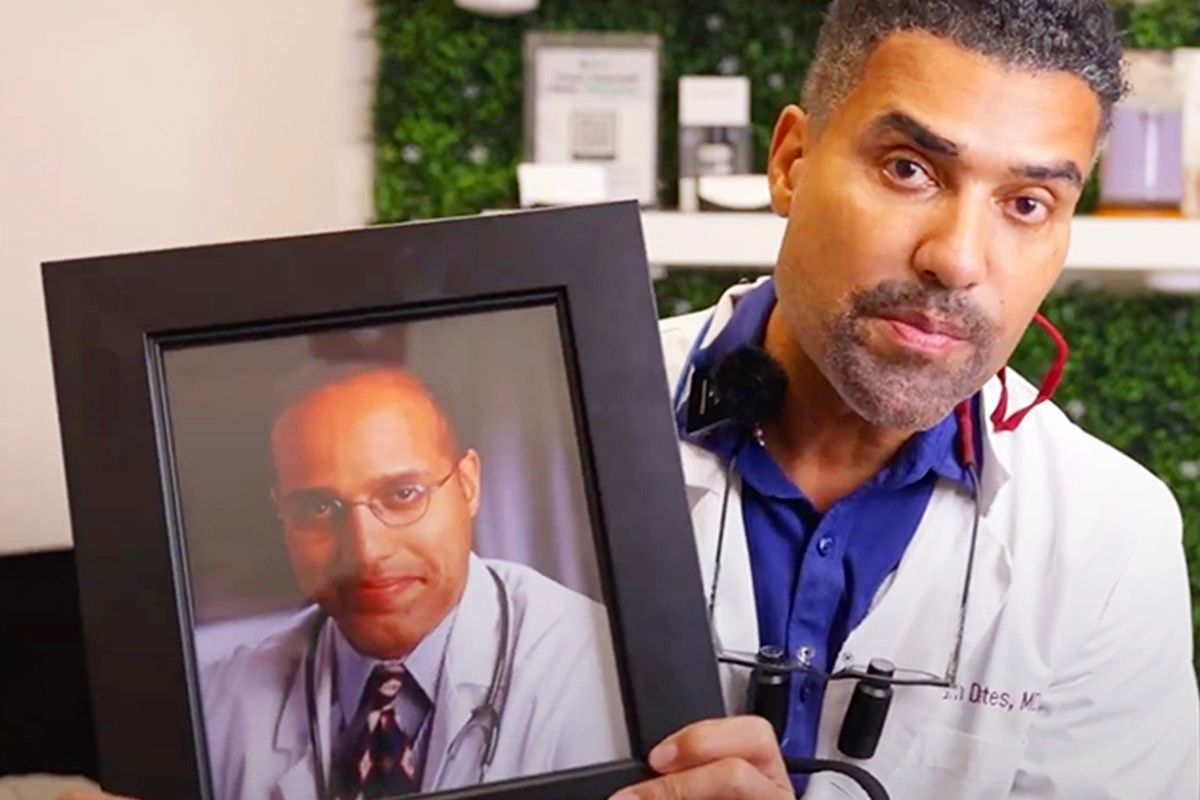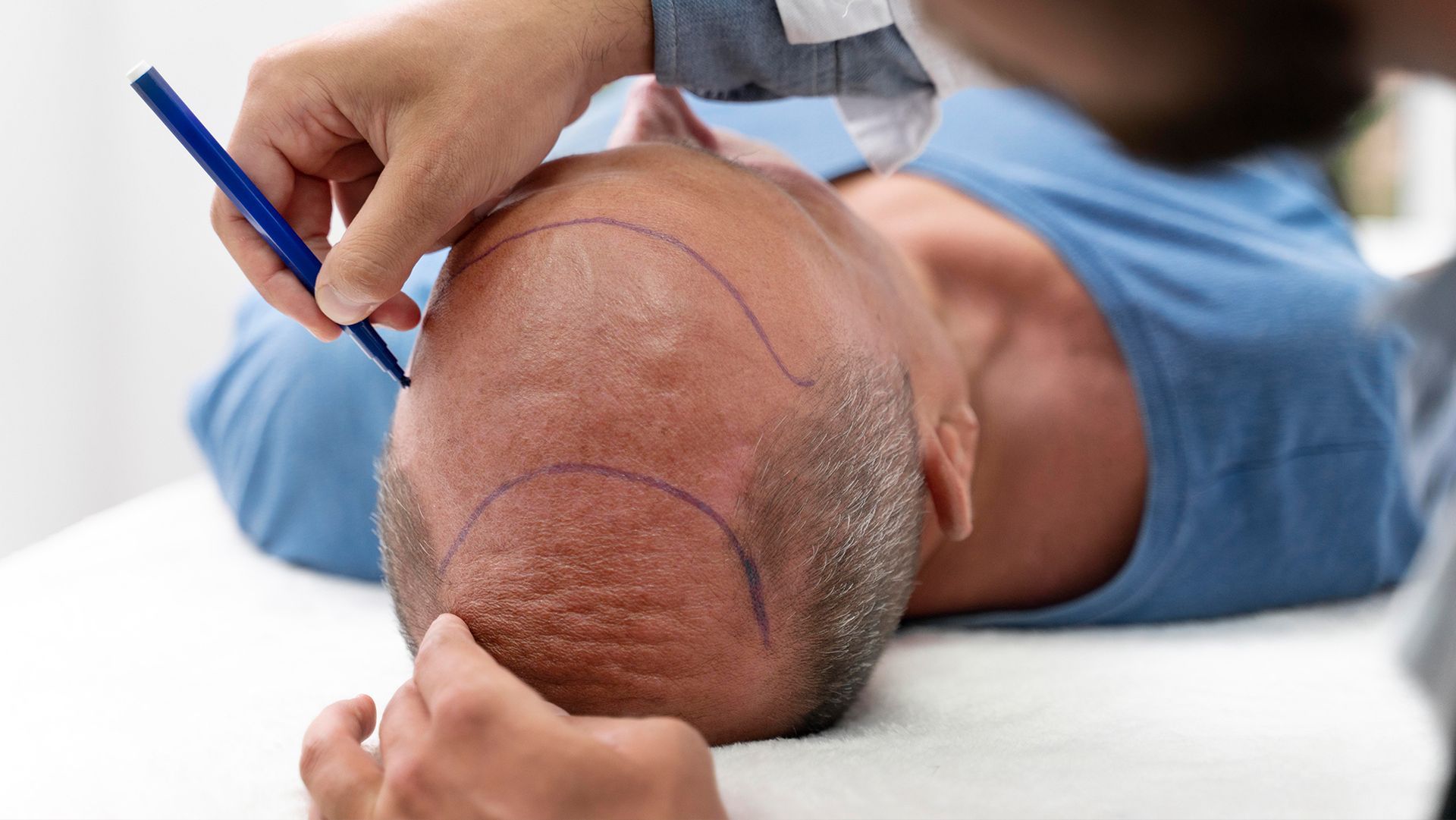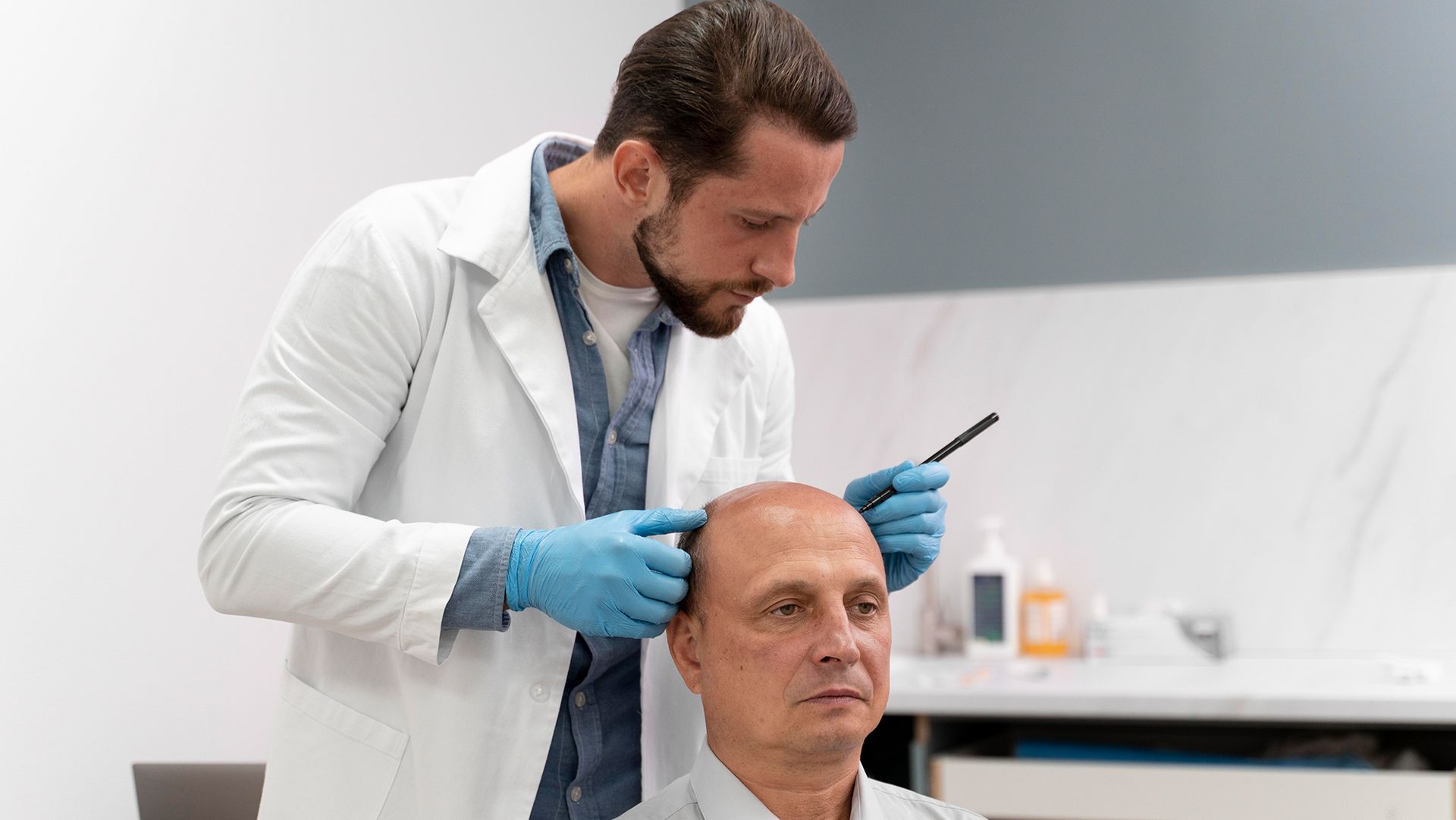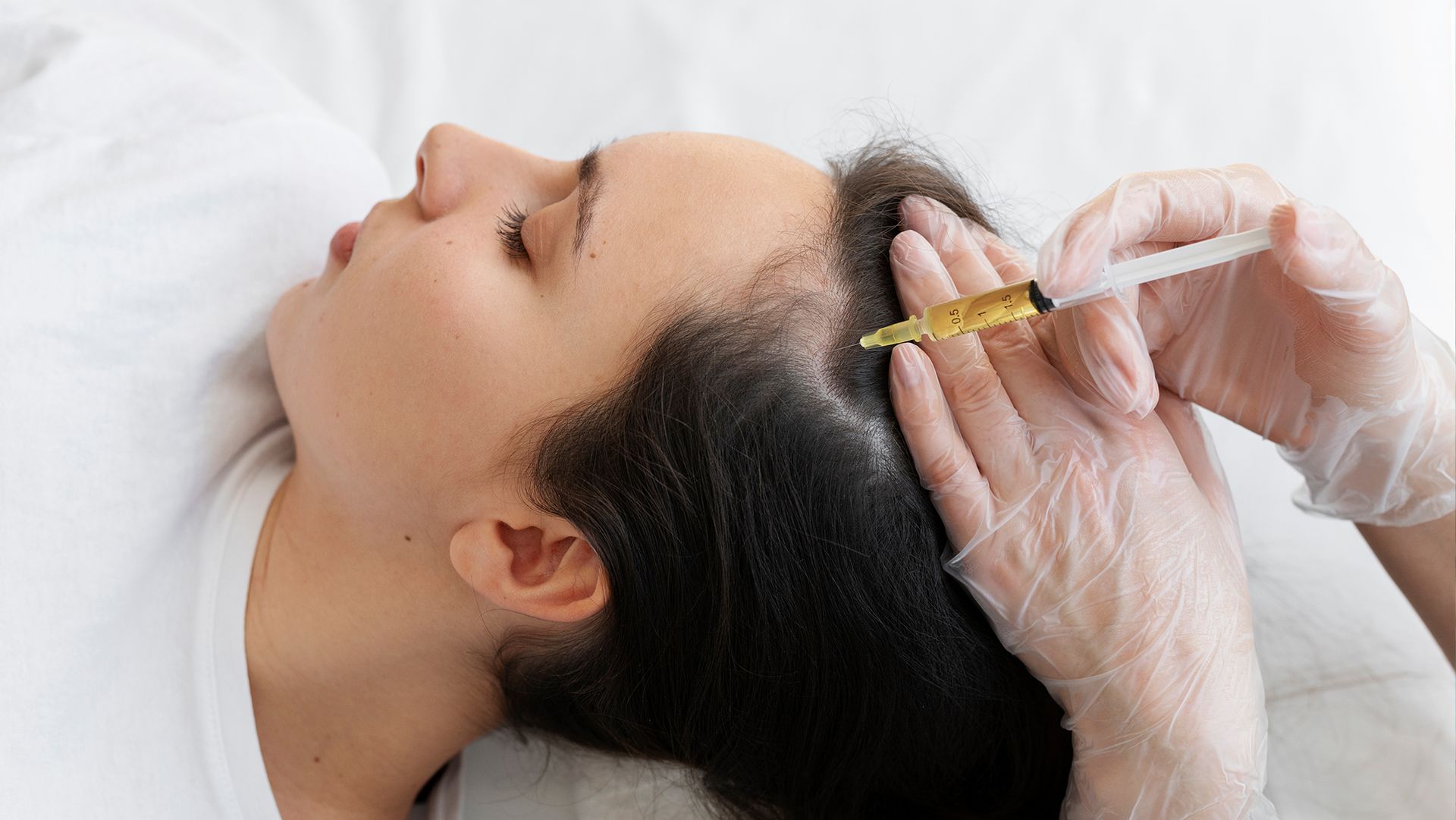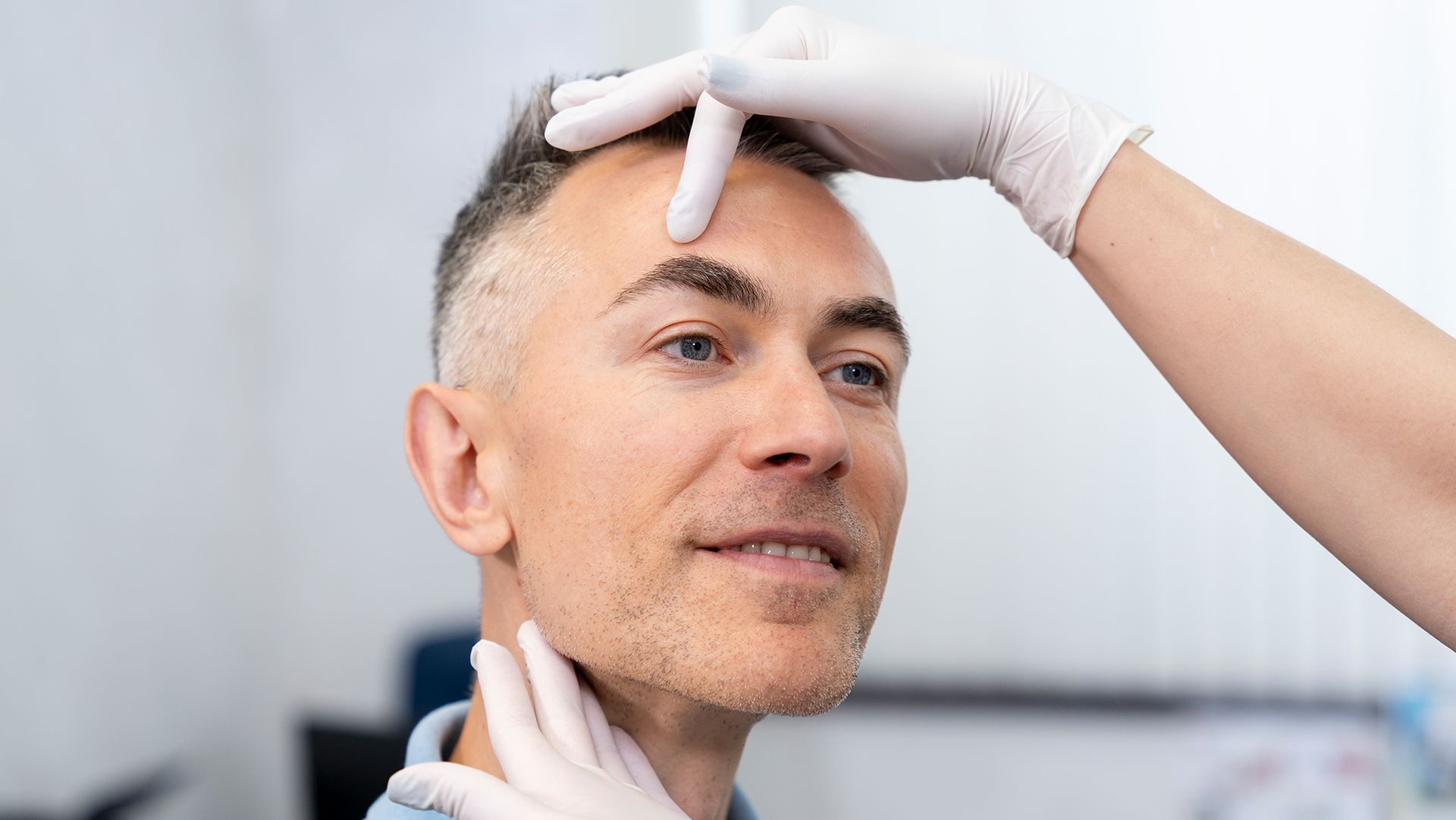Can you Have a Hair Transplant and Scalp Micropigmentation?
Can you Have a Hair Transplant and Scalp Micropigmentation?
Many women and most men will experience some degree of hair loss throughout their life and in fact, it is believed that 50% of men will have some degree of androgenetic alopecia (male pattern baldness) by the time they turn 50. Since there are so many patients who will want to find a solution for their hair loss, there have been great advances in the hair restoration field throughout the years.
One of the treatments that is becoming more and more popular is scalp micropigmentation. Scalp micropigmentation is a non-surgical hair loss treatment option in which natural pigments are applied at the epidermis level of the scalp in order to replicate the appearance of hair follicles or strands. Scalp micropigmentation delivers very realistic and natural looking results that replicate the natural patterns of any hair you have remaining by applying several layers of pigment and varying the depth and angle of them.
Scalp micropigmentation is a very popular treatment option for both men and women because they are able to get instant results, experience very little pain and have little to no downtime. Even though scalp micropigmentation does not actually restore your hair, it is great at hiding any hair loss you are experiencing.
Another option for those suffering from hair loss is a hair transplant, which is a surgical procedure that is the only permanent solution for hair loss. This procedure will take a few hours and afterwards, there will be a bit of redness, some minor swelling and some scabbing where the hair was transplanted. This will usually clear up within a week.
Many people are opting to combine these treatments in order to reap the benefits that they each offer.
Getting Scalp Micropigmentation Before Having a Hair Transplant Surgery
It is normally recommended that young men do not get a hair transplant surgery until they are older, since their hair loss pattern is not very likely to be well established and it is essential that only permanent hair follicles that are not affected by androgenetic alopecia down the road are transplanted.
However, young men can get scalp micropigmentation and this may be an excellent option for young men who are unhappy with their current state of hair loss and are looking for a solution. If further hair loss occurs, you may need to have another treatment eventually and getting a hair transplant surgery is a viable option since there will not be any damage to your hair follicles or to your scalp.
Getting Scalp Micropigmentation After Having a Hair Transplant Surgery
There are some patients who had a hair transplant years ago and are looking to hide the scars from their surgery. This happens often for men who had the old-fashioned FUT “strip” surgery that left behind long and very apparent scars on the back of their head. Scalp micropigmentation allows for these scars to be camouflaged, which can help to restore self-confidence.
Combining Scalp Micropigmentation and a Hair Transplant
When patients have a hair transplant, there is only a certain amount of follicles that are able to be transplanted and this number can be further reduced if there is only a small donor area. After the hair transplant, scalp micropigmentation can help to enhance the appearance of the hair’s density.
If you would like to learn more about what hair loss treatments would be a good solution for you, you can contact the experienced hair loss physician, Dr. Yates. He will be able to determine what is causing your hair loss and will let you know what your options are for treatment.
